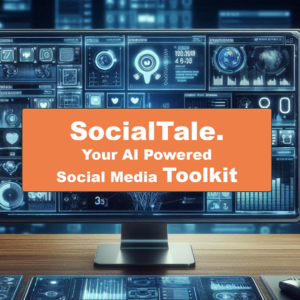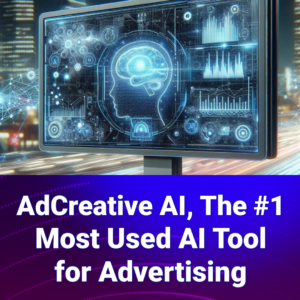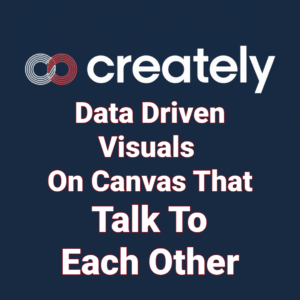The Paris Olympics will showcase AI’s capabilities in various aspects of the event. From enhancing the fan experience to optimizing event management, AI will play a crucial role in ensuring the success of the Olympics.
One key application of AI at the Paris Olympics will be in broadcasting. AI will analyze viewer data and deliver personalized content recommendations, ensuring that viewers get the most relevant and engaging content. AI will also enhance the viewing experience with features like real-time analytics and interactive content.
In addition to broadcasting, AI will be used in security and event management. AI-driven security solutions will ensure the safety and efficiency of the event, while AI-powered event management systems will streamline operations and improve the overall experience for athletes, organizers, and fans.
AI-Driven Marketing Strategies for the Olympics
The Paris Olympics will also see the debut of AI-driven marketing strategies. Marketers are using AI to develop innovative strategies that aim to maximize engagement and deliver personalized content to the audience.
One key strategy is predictive analytics. By analyzing historical data and current trends, AI can predict future behavior and help marketers develop strategies that are more likely to succeed. This includes everything from predicting which types of content will be most popular to identifying the best times to post on social media.
Another key strategy is personalization. AI can analyze consumer data to create detailed profiles and deliver personalized content that resonates with each individual. This includes personalized emails, targeted ads, and customized content recommendations.
Case Studies of AI in Previous Olympics
Previous Olympics have used AI in various ways, providing valuable insights into the potential impact of AI at the Paris Olympics. For example, during the Tokyo 2020 Olympics, AI was used to analyze athlete performance and provide real-time feedback. This not only helped athletes improve their performance, but also provided valuable insights for coaches and analysts.
In addition to performance analysis, AI was also used in broadcasting and fan engagement. AI-powered systems analyzed viewer data to deliver personalized content recommendations, ensuring that viewers got the most relevant and engaging content. This led to higher viewer satisfaction and increased engagement.
Expected Impact on Audience Engagement
AI-driven marketing strategies are expected to significantly enhance audience engagement at the Paris Olympics. Personalized content and real-time interactions will create a more immersive experience for viewers, leading to higher satisfaction and engagement.
One of the key benefits of AI-driven marketing is its ability to deliver personalized experiences. By analyzing consumer data, AI can create detailed profiles and deliver content that resonates with each individual. This not only improves the customer experience but also increases the chances of conversion.
In addition to personalization, AI can also optimize marketing efforts by analyzing data in real-time and identifying what is working and what isn’t. This allows marketers to make data-driven decisions and adjust their strategies accordingly, leading to more efficient use of marketing resources and higher ROI.
Research Insights from Optimizely
Optimizely, a leading digital experience platform provider, conducted a study to understand the use of AI in marketing. The study surveyed 100 marketers and 1,000 consumers in the UK, providing valuable insights into the current state of AI in marketing and its potential impact.
AI Usage Among UK Marketers
The study found that 51% of UK marketers are using AI to plan and develop their marketing strategies for the Olympics. This trend is part of a broader movement towards AI-driven marketing, with 55% of marketers using AI to plan and test the best strategies for seasonal marketing.
The study also found that nearly two-thirds (62%) of UK marketers consider AI essential for continuously improving their experimentation approaches. This highlights the growing importance of AI in modern marketing and its potential to drive innovation and efficiency.
Consumer Perception of AI in Marketing
The study also explored consumer perception of AI in marketing. The findings indicate that consumers are generally positive about the use of AI in marketing, provided it enhances their digital experiences. Over half (54%) of the surveyed consumers expressed approval if AI is used to improve their digital experiences.
This positive perception is crucial for the successful implementation of AI-driven marketing strategies. Consumers today expect brands to understand their needs and preferences and to deliver relevant content and offers. AI can help marketers meet these expectations by delivering personalized experiences that resonate with each individual.
Implications of the Research
Benefits for Marketers
The research highlights several benefits of AI for marketers. One of the key benefits is cost reduction. By automating repetitive tasks and optimizing marketing efforts, AI can significantly reduce marketing costs. The study found that 59% of marketers believe AI will reduce experimentation costs, while 70% think it increases speed and 62% say it yields more accurate results.
In addition to cost reduction, AI also offers several other benefits for marketers. By analyzing data in real-time, AI can identify what is working and what isn’t, allowing marketers to make data-driven decisions and adjust their strategies accordingly. This leads to more efficient use of marketing resources and higher ROI.
Benefits for Consumers
For consumers, AI enhances digital experiences by delivering personalized content and interactions. This leads to higher satisfaction and engagement, as consumers feel that brands understand their needs and preferences.
The study found that over half (54%) of the surveyed consumers expressed approval if AI is used to improve their digital experiences. This positive perception is crucial for the successful implementation of AI-driven marketing strategies, as it indicates that consumers are open to the use of AI in marketing, provided it enhances their experience.
Broader Applications of AI at the Paris Olympics
One of the key applications of AI at the Paris Olympics will be in broadcasting. AI will be used to analyze viewer data and deliver personalized content recommendations, ensuring that viewers get the most relevant and engaging content.
AI can also enhance the viewing experience with features such as real-time analytics and interactive content. For example, AI can analyze viewer data to identify which types of content are most popular and deliver personalized recommendations based on this data. This ensures that viewers get the most relevant and engaging content, leading to higher satisfaction and engagement.
In addition to personalized content recommendations, AI can also enhance the viewing experience with real-time analytics. For example, AI can analyze viewer data in real-time to identify trends and patterns, providing valuable insights for broadcasters and advertisers. This allows them to make data-driven decisions and adjust their strategies accordingly, leading to more efficient use of resources and higher ROI.
AI in Safety and Security
AI-driven security solutions will play a crucial role in ensuring the safety and efficiency of the Paris Olympics. These solutions include facial recognition, crowd management, and threat detection, among others.
Facial recognition technology can be used to identify and verify individuals, ensuring that only authorized personnel have access to restricted areas. This not only enhances security but also improves efficiency by reducing the need for manual checks.
Crowd management is another key application of AI in security. AI-powered systems can analyze crowd data in real-time to identify potential issues and take proactive measures to prevent them. This includes everything from managing crowd flow to identifying and addressing potential threats.
Threat detection is another crucial application of AI in security. AI-powered systems can analyze data from various sources to identify potential threats and take proactive measures to address them. This includes everything from monitoring social media for potential threats to analyzing video footage for suspicious activity.
AI in Event Management
AI will also play a crucial role in streamlining various aspects of event management at the Paris Olympics. From scheduling to logistics, AI-powered systems will ensure a smooth and efficient operation of the event.
One of the key applications of AI in event management is scheduling. AI-powered systems can analyze data to create optimized schedules that take into account various factors such as athlete availability, venue capacity, and weather conditions. This ensures that the event runs smoothly and efficiently, with minimal disruptions.
Logistics is another key area where AI can make a significant impact. AI-powered systems can analyze data to optimize logistics operations, ensuring that everything from transportation to accommodation is managed efficiently. This not only improves the overall experience for athletes, organizers, and fans but also reduces costs and increases efficiency.
Consumer Acceptance of AI in Marketing
The research indicates that consumers are generally positive about the use of AI in marketing. This positive perception is crucial for the successful implementation of AI-driven marketing strategies, as it indicates that consumers are open to the use of AI in marketing, provided it enhances their experience.
One of the key benefits of AI in marketing is its ability to deliver personalized experiences. Consumers today expect brands to understand their needs and preferences and to deliver relevant content and offers. AI can help marketers meet these expectations by delivering personalized experiences that resonate with each individual.
Enhancing Digital Experiences
AI enhances digital experiences by delivering personalized content and interactions. This leads to higher satisfaction and engagement, as consumers feel that brands understand their needs and preferences.
The study found that over half (54%) of the surveyed consumers expressed approval if AI is used to improve their digital experiences. This positive perception is crucial for the successful implementation of AI-driven marketing strategies, as it indicates that consumers are open to the use of AI in marketing, provided it enhances their experience.
The Olympics Highlights the Increasing Adoption of AI
The Paris Olympics may mark the beginning of a more extensive adoption of AI in marketing. As AI technology continues to evolve, its applications in marketing are expected to expand, offering more personalized and efficient marketing solutions.
One of the key trends in AI adoption is the increasing use of predictive analytics. By analyzing historical data and current trends, AI can predict future behavior and help marketers develop strategies that are more likely to succeed. This includes everything from predicting which types of content will be most popular to identifying the best times to post on social media.
Evolving AI Technologies
AI technologies are constantly evolving, offering new opportunities for marketers. These advancements will enable more personalized and efficient marketing solutions, helping marketers stay ahead of the curve in the rapidly evolving marketing landscape.
One of the key advancements in AI technology is the development of more sophisticated machine learning algorithms. These algorithms can analyze vast amounts of data with remarkable accuracy, providing valuable insights that can inform marketing strategies. This includes everything from identifying patterns and trends to predicting future behavior.
Challenges and Opportunities
Despite its benefits, there are challenges to AI adoption in marketing. These include data privacy concerns, high implementation costs, and the need for skilled personnel.
Data privacy is a significant concern for both marketers and consumers. As AI relies on vast amounts of data to function effectively, ensuring the privacy and security of this data is crucial. Marketers need to be transparent about how they collect and use data and ensure that they comply with data privacy regulations.
High implementation costs are another barrier to AI adoption. Implementing AI solutions can be expensive, particularly for small and medium-sized businesses. However, as AI technology continues to evolve and become more accessible, these costs are expected to decrease.
The need for skilled personnel is another challenge. Implementing and managing AI solutions requires specialized skills and knowledge, which can be difficult to find. Marketers need to invest in training and development to ensure that they have the necessary skills to leverage AI effectively.
Leveraging AI for Competitive Advantage
Marketers who successfully leverage AI will gain a competitive advantage. AI-driven strategies will enable them to deliver more personalized and effective marketing campaigns, leading to higher engagement and conversion rates.
One of the key benefits of AI is its ability to deliver personalized experiences. By analyzing consumer data, AI can create detailed profiles and deliver content that resonates with each individual. This not only improves the customer experience but also increases the likelihood of conversion.
In addition to personalization, AI can also optimize marketing efforts by analyzing data in real-time and identifying what is working and what isn’t. This allows marketers to make data-driven decisions and adjust their strategies accordingly, leading to more efficient use of marketing resources and higher ROI.
Conclusion
The debut of AI-informed marketing strategies at the Paris Olympics represents a significant milestone in the integration of AI into marketing. This trend is supported by positive consumer reception and the potential for AI to improve marketing efficiency and effectiveness.
AI offers numerous benefits for marketers, including cost reduction, increased speed, and more accurate results. By analyzing data in real-time, AI can identify what is working and what isn’t, allowing marketers to make data-driven decisions and adjust their strategies accordingly. This leads to more efficient use of marketing resources and higher ROI.
For consumers, AI enhances digital experiences by delivering personalized content and interactions. This leads to higher satisfaction and engagement, as consumers feel that brands understand their needs and preferences.
The Road Ahead for AI in Marketing
As AI technology continues to evolve, its applications in marketing are expected to expand. Marketers who embrace AI will be well-positioned to stay ahead of the curve in the rapidly evolving marketing landscape.
The Paris Olympics may mark the beginning of a more extensive adoption of AI in marketing. As AI technology continues to evolve, its applications in marketing are expected to expand, offering more personalized and efficient marketing solutions.
Marketers who successfully leverage AI will gain a competitive advantage. AI-driven strategies will enable them to deliver more personalized and effective marketing campaigns, leading to higher engagement and conversion rates.
FAQs
What are AI-informed marketing strategies?
AI-informed marketing strategies use artificial intelligence to analyze data, predict consumer behavior, and deliver personalized marketing content. These strategies aim to optimize marketing efforts and enhance audience engagement.
How is AI being used at the Paris Olympics?
AI is being used in various aspects of the Paris Olympics, including broadcasting, security, and event management. AI-driven marketing strategies are also being used to enhance audience engagement and deliver personalized content.
What are the benefits of AI in marketing?
AI offers numerous benefits for marketers, including cost reduction, increased speed, and more accurate results. AI can also deliver personalized experiences, leading to higher satisfaction and engagement among consumers.
How do consumers perceive AI in marketing?
Consumers are generally positive about the use of AI in marketing, provided it enhances their digital experiences. Over half of the surveyed consumers expressed approval if AI is used to improve their digital experiences.
What are the challenges of AI adoption in marketing?
Challenges of AI adoption in marketing include data privacy concerns, high implementation costs, and the need for skilled personnel. Marketers need to address these challenges to successfully leverage AI.
What is the future of AI in marketing?
The future of AI in marketing looks promising, with increasing adoption and evolving technologies. AI is expected to offer more personalized and efficient marketing solutions, helping marketers stay ahead of the curve in the rapidly evolving marketing landscape.















